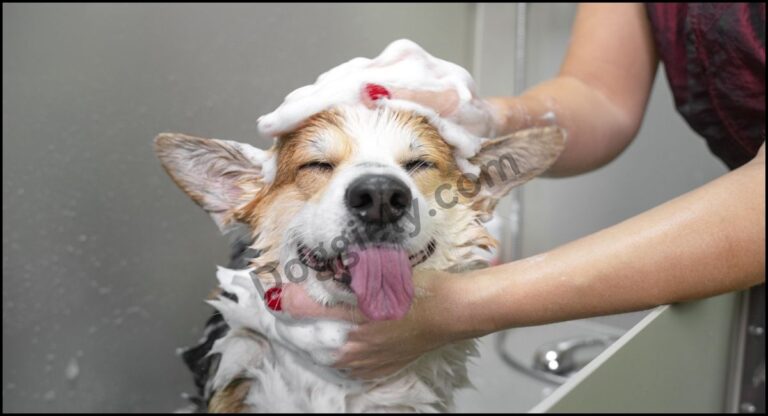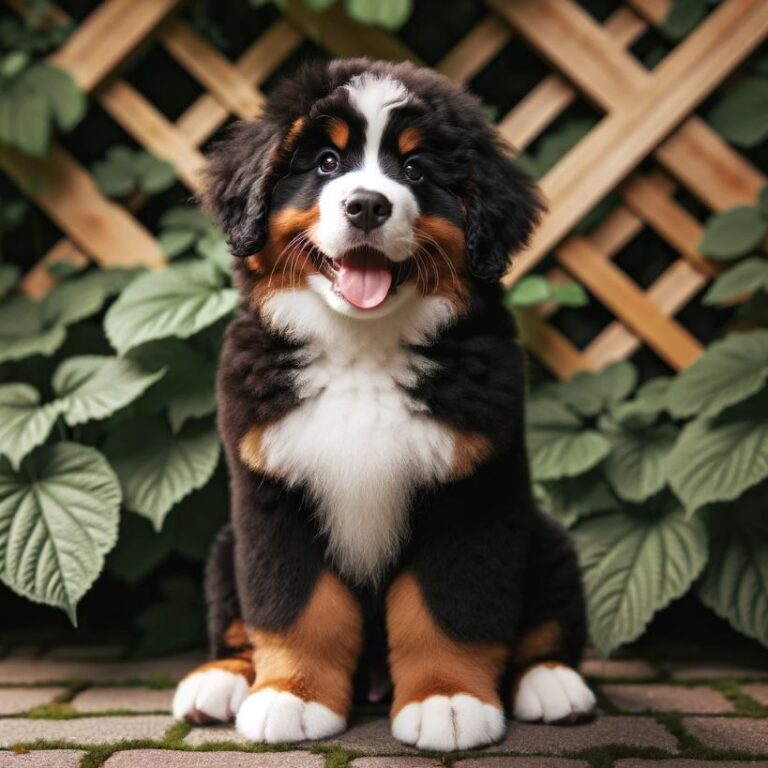Understanding the Yorkie Pitbull Mix: A Comprehensive Guide

The Yorkie-Pitbull mix, often referred to as a “Pitkie” or a “Yorkie-Pit,” is a unique crossbreed that combines the Yorkshire Terrier and the American Pit Bull Terrier. This comprehensive guide will explore various aspects of the Yorkie Pitbull mix, including its history, physical characteristics, temperament, health concerns, and care requirements.
History and Origin
Understanding the Yorkie-Pitbull mix requires a look into the origins and histories of the Yorkshire Terrier and the American Pit Bull Terrier.
Yorkshire Terrier (Yorkie)
- Origin: The Yorkshire Terrier originated in England during the 19th century. They were initially bred by working men in Northern England, particularly in the county of Yorkshire, hence the name.
- Purpose: Yorkies were primarily bred for catching rats in mills. They were valued for their small size, which allowed them to fit into tight spaces in industrial establishments.
- Development: The breed was refined over time, becoming a popular companion animal. The Yorkie was recognized by the Kennel Club in England in 1886 and has since evolved into a fashionable lapdog, known for its long, silky coat and perky topknot.
American Pit Bull Terrier
- Origin: The American Pit Bull Terrier has its roots in the United Kingdom and Ireland. These dogs were originally bred from Old English Bulldogs, who were used for bull-baiting—a popular sport in medieval Europe.
- Purpose: Following the outlawing of bull-baiting in 1835, these dogs were increasingly used for dog fighting, a clandestine and cruel activity. However, they were also valued as farm dogs and family companions for their strength, loyalty, and protective nature.
- Development: Immigrants to the United States brought these dogs with them, where they became known as Pit Bull Terriers. They were used as catch dogs for semi-wild cattle and hogs, to hunt, and to drive livestock.
Yorkie-Pitbull Mix
- Hybrid Origin: The pit bull Yorkie mix is a much more recent development, likely originating within the last few decades as interest in designer dogs has increased.
- Purpose: This crossbreed was created to combine the small, manageable size of the Yorkie with the strength and loyalty of the Pit Bull. It’s intended to be a companion dog, capitalizing on the affectionate nature of both parent breeds.
- Recognition: As a hybrid, the Yorkie-Pitbull mix is not recognized by major kennel clubs. However, it has gained popularity among those who appreciate the unique blend of traits from these two distinct dog breeds.
- Current Status: Today, the pitbull yorkie mix is valued for its unique appearance, versatile size, and the combination of traits such as intelligence, affection, and loyalty. They are seen more as family pets and companions, reflecting the changing role of dogs in society.yorkie
In summary, the Yorkie-Pitbull mix is a testament to the evolving nature of dog breeding, blending the historical and working backgrounds of two very different breeds to create a unique, modern-day companion animal.
Physical Characteristics
Here’s a table that analyzes the physical characteristics of a Yorkie mixed with a Pitbull, including their lifespan:
| Characteristic | Description |
|---|---|
| Size | Small to medium. The exact size can vary but generally falls between the small Yorkie and the medium to large Pitbull. |
| Build | Muscular and sturdy, reflecting the Pitbull’s strength, with possible delicate features of the Yorkie. |
| Coat Type | Can range from short and smooth (like a Pitbull) to longer and silky (like a Yorkie). The coat type is unpredictable due to the mix. |
| Coat Color | Wide range, including tan, black, white, brindle, and possibly the Yorkie’s traditional blue and tan. |
| Head Shape | A blend of the Pitbull’s broader head and the Yorkie’s smaller, more refined head shape. |
| Ears | Can be either erect or floppy, depending on which parent breed’s traits are more dominant. |
| Eyes | Typically expressive, can vary in color. Known for a warm, friendly gaze. |
| Tail | May be long and high-set like a Yorkie or shorter and thicker like a Pitbull. |
| Legs | Usually proportionate to the body, showing a mix of muscularity (Pitbull) and delicacy (Yorkie). |
| Lifespan | Generally, ranges from 10 to 15 years, depending on health, care, and environmental factors. |
Read more: Why do dogs hide their treats? Understanding Canine Behavior
Size Variations
The size variations in Yorkie-Pitbull mixes are significant and can be somewhat unpredictable but A Yorkie-Pitbull mix might weigh anywhere from 15 to 60 pounds (6.8 to 27.2 kg) and stand about 10 to 20 inches (25 to 50 cm) tall at the shoulder. This range is a broad estimate and can vary with each individual dog. Potential owners should be prepared for this variability and understand that their mix might fall anywhere within a wide range of sizes. This size diversity is part of the charm of mixed-breed dogs, offering a unique blend of characteristics from both the Yorkshire Terrier and the American Pit Bull Terrier.

Diet and Nutrition Needs
The diet and nutrition need of a Yorkie-Pitbull mix are unique due to the blend of characteristics from two distinctly different breeds. The key to ensuring a healthy diet for a pit yorkie mix is to consider their size, activity level, and any specific health concerns that may arise from their mixed breed heritage.
Understanding Their Dietary Needs
- Caloric Intake: Given the size variations in Yorkie-Pitbull mixes, their caloric needs can differ significantly. Smaller mixes (leaning towards the Yorkie size) will require fewer calories, while larger mixes (closer to the Pit Bull size) will need more. It’s essential to calculate their caloric intake based on their current size, age, and activity level.
- Protein Content: High-quality protein is crucial for muscle maintenance, especially considering the muscular build of the Pit Bull. Look for diets that list real meat as the first ingredient.
- Fat Content: Healthy fats are important for energy, particularly for active dogs. However, the amount should be moderated to prevent obesity, especially if the mix leans towards the smaller, Yorkie size.
- Carbohydrates and Fiber: Carbohydrates provide energy, while fiber aids in digestion. Sources like whole grains, vegetables, and fruits can be beneficial. However, the carbohydrate content should not be excessively high.
- Vitamins and Minerals: A balanced diet that includes essential vitamins and minerals is crucial for overall health. This includes calcium for bone health and essential fatty acids for skin and coat health.
Special Considerations
- Life Stage: Puppies, adults, and senior dogs have different nutritional requirements. Puppies need more calories and protein for growth, while senior dogs might need a diet lower in calories but rich in joint-supporting nutrients.
- Activity Level: More active dogs will require a diet higher in calories and protein. In contrast, less active dogs need a diet lower in calories to avoid weight gain.
- Health Issues: If the mix inherits health issues from either of its parent breeds, like hip dysplasia or dental issues, specific dietary adjustments might be necessary. For example, supplements like glucosamine can be beneficial for joint health.
- Allergies or Sensitivities: Some dogs may develop food allergies or sensitivities. It’s important to identify and avoid ingredients that cause adverse reactions.
Feeding Routine
- Consistency: Regular feeding times help maintain a healthy digestive system. Typically, two meals a day is suitable for adult dogs, while puppies may require more frequent feeding.
- Portion Control: Monitor food intake to prevent overfeeding, which can lead to obesity, particularly in smaller, less active dogs.
- Hydration: Ensure that fresh water is always available, as hydration is an essential part of overall health.
Temperament and Personality
This hybrid combines traits from both of its parent breeds, leading to a range of possible temperaments. However, there are common qualities typically observed in these mixes.
Influences on Temperament
- Genetic Factors: The mix of Yorkie and Pitbull genes can result in a range of temperaments. The Yorkie’s bold and confident nature mixed with the Pitbull’s loyalty and affectionate disposition creates a unique blend.
- Environment and Upbringing: The way a Yorkie-Pitbull mix is raised, including their early socialization and training, significantly impacts their temperament.
- Owner Interaction: These dogs often reflect the mood and behavior of their owners. A loving and stable home environment typically fosters a well-adjusted dog.
Common Temperamental Traits
- Affectionate and Loyal: Both Yorkies and Pitbulls are known for their loyalty and affection towards their owners. This mix tends to form strong bonds with family members and can be very loving.
- Energetic and Playful: The mix is likely to inherit the high energy levels of the Pitbull and the playful nature of the Yorkie, making them enthusiastic and active companions.
- Intelligent and Trainable: With both parent breeds being intelligent, the Yorkie-Pitbull mix is usually smart and can be trained effectively, although they might sometimes exhibit a stubborn streak.
- Alert and Protective: The Yorkie’s alertness combined with the Pitbull’s protective nature can make the Yorkie-Pitbull mix a good watchdog. They are often wary of strangers but can be socialized to be well-mannered.
- Adaptable: These dogs tend to adapt well to different living environments, provided they receive enough exercise and mental stimulation.
Potential Challenges
- Stubbornness: If the Yorkie’s independence or the Pitbull’s strong will is dominant, it can lead to stubbornness, requiring consistent and patient training.
- Prey Drive: The Yorkie’s background as a ratter might influence the mix, leading to a higher prey drive. This trait requires management, especially in homes with other small pets.
- Separation Anxiety: Due to their strong attachment to their owners, some Yorkie-Pitbull mixes may experience separation anxiety if left alone for long periods.
- Socialization Needs: Proper socialization is crucial from a young age to ensure they are comfortable and well-behaved around other dogs and people.
The temperament and personality of a Yorkie-Pitbull mix can be a delightful combination of affection, energy, intelligence, and protectiveness. Their adaptable nature makes them suitable for various households, but they thrive best with active families who can provide them with ample attention, exercise, and training. As with any dog, a nurturing and structured environment will bring out the best in a Yorkie-Pitbull mix, resulting in a loyal, loving, and well-rounded companion.
Exercise Requirements
Exercise requirements for a Yorkie mixed with a Pitbull can vary significantly due to the differing energy levels and physical capabilities of the parent breeds. Understanding and meeting the exercise needs of this mix is crucial for their physical health and mental well-being.
Factors Influencing Exercise Needs
- Size and Build: The size and build of a Yorkie-Pitbull mix can range from small to medium, impacting their stamina and exercise tolerance. Larger, more muscular mixes may have higher energy levels and endurance, akin to Pitbulls, while smaller mixes may require less strenuous activities.
- Energy Levels: Pitbulls are known for their high energy and need for regular physical activity. Yorkies, while lively, may not have the same endurance. The mix will likely have moderate to high energy levels, requiring a balanced approach to exercise.
- Age and Health: Puppies and younger dogs generally have more energy and may require more frequent short bursts of activity. Senior dogs or those with health issues may need gentler, less frequent exercise.
Types of Exercise
- Daily Walks: Regular walks are essential, providing not just physical exercise but also mental stimulation. The length and intensity of the walk can depend on the dog’s size and energy level.
- Playtime: Interactive play sessions, including fetch, tug-of-war, and other games, can provide both physical activity and an opportunity for bonding.
- Training Sessions: Incorporating training into exercise routines can mentally stimulate your dog while reinforcing obedience and behavioral skills.
- Agility Training: For more energetic mixes, agility training can be an excellent way to burn off excess energy and provide mental stimulation.
- Swimming: If your mix takes after the Pitbull’s love for water, swimming can be an excellent low-impact exercise, especially beneficial for dogs with joint issues.
Exercise Precautions
- Overexertion: Be mindful not to over-exercise your dog, especially if they are smaller or have any health concerns. Watch for signs of fatigue or overheating.
- Weather Considerations: Extreme temperatures can be harmful. Exercise during cooler parts of the day in hot weather and ensure your dog is warm enough in cold weather.
- Socialization: If your mix is sociable, dog parks can be a great place for exercise. However, always supervise interactions with other dogs to ensure play remains safe and positive.
- Mental Exercise: Mental stimulation is just as important as physical activity. Puzzle toys, scent games, and hide-and-seek can keep their mind active.
Regularity and Consistency
- Routine: Establishing a regular exercise routine helps manage your dog’s energy levels and prevents boredom, which can lead to destructive behaviors.
- Balance: Balance is key. Mix up different types of activities to keep your dog engaged and interested.
Read more: Can Dogs Eat Almonds? Understanding the Risks

Best Dog Toys and Accessories
Here is a table that analyze the best dog toys and accessories for Yorkie-Pitbull mixes, along with their benefits to the dogs’ well-being, provides a helpful guide for owners to choose the right items for their pets. Given the unique nature of the Yorkie-Pitbull mix, which may inherit traits from both the energetic, muscular Pitbull and the smaller, playful Yorkie, a range of toys and accessories can cater to their diverse needs.
| Toy/Accessory Type | Description | Benefits to Well-being |
|---|---|---|
| Chew Toys | Durable rubber or nylon toys designed for chewing. | – Promotes dental health. – Helps relieve stress and boredom. – Satisfies natural chewing instincts. |
| Interactive Toys | Puzzle toys, treat-dispensing toys. | – Provides mental stimulation. – Helps prevent boredom. – Encourages problem-solving skills. |
| Tug Toys | Sturdy ropes or rubber toys for tug-of-war. | – Good for physical exercise. – Strengthens the bond with the owner. – Helps in training impulse control. |
| Fetch Toys | Balls, frisbees, or durable soft toys. | – Encourages exercise and play. – Enhances coordination and retrieval skills. – Good for outdoor activity and interaction. |
| Plush Toys | Soft toys for cuddling and gentle play. | – Provides comfort and a sense of security. – Ideal for gentler, indoor play. – Good for dogs with a softer play style. |
| Training Accessories | Harnesses, leashes, and training clickers. | – Facilitates training and outdoor walks. – Ensures safety and control. – Useful for obedience and behavior training. |
| Comfort Accessories | Beds, blankets, and raised dog beds. | – Offers a comfortable resting place. – Helps with relaxation and stress relief. – Provides a sense of personal space. |
| Dental Toys | Rubber or nylon toys designed to clean teeth. | – Helps maintain dental hygiene. – Reduces plaque and tartar build-up. – Prevents gum disease. |
| Enrichment Toys | Toys that mimic hunting or foraging activities. | – Stimulates natural instincts. – Provides physical and mental enrichment. – Reduces potential for destructive behavior. |
Read more: Micro Bully: Introduction and Essential CARING TIPS for Owners
Health Screening Tests for Yorkie-Pitbull Mix Puppies
a table to analyze various health screening tests for Yorkie-Pitbull mix puppies, along with the purpose of each test, is an effective way to understand the importance of these screenings in ensuring the health and well-being of these unique crossbreeds.
| Health Screening Test | Purpose |
|---|---|
| Genetic Testing | – To identify inherited genetic diseases common to Yorkies or Pitbulls. – Early detection of conditions like Progressive Retinal Atrophy (PRA), Luxating Patellas (Yorkies), and hereditary cataracts (Pitbulls). |
| Orthopedic Screening | – To assess the skeletal system for joint and bone health. – Early detection of hip dysplasia, a concern particularly in Pitbulls. |
| Cardiac Examination | – To evaluate heart health, especially considering Pitbulls are prone to certain heart conditions. – Detects congenital heart defects and other cardiac issues. |
| Ophthalmic Examination | – To check for eye health issues. – Important for detecting early signs of inherited eye conditions like cataracts or PRA. |
| Hearing Tests | – To assess hearing capabilities, especially relevant if the Yorkie-Pitbull mix exhibits white or merle coat patterns associated with congenital deafness. |
| Blood Work and Urinalysis | – To provide a general overview of the puppy’s internal health. – Detects issues like liver disease, kidney dysfunction, or metabolic disorders. |
| Dental Checks | – To monitor dental development and oral health. – Essential due to Yorkies being prone to dental issues. |
| Patella Evaluation | – To check for luxating patellas, a common issue in smaller breeds like Yorkies. – Important for ensuring joint health and mobility. |
It’s important for Yorkie-Pitbull mix puppy owners to consult with a veterinarian to determine the appropriate health screenings based on the puppy’s specific lineage and risk factors.
Read more: How To Groom a Pitbull: Helpful Tips and Steps
how to buy and what to lookout for
When buying a Yorkie-Pitbull mix puppy, it’s crucial to be thorough in your approach to ensure you bring home a healthy, well-adjusted dog. Here’s a checklist of key factors to consider and look out for during the process:
1. Health and Medical Records
- Vaccinations: Ensure the puppy has received age-appropriate vaccinations.
- Deworming: Check if the puppy has been dewormed.
- Veterinary Records: Ask for a full veterinary record that includes any check-ups or treatments the puppy has received.
- Health Screening: Confirm that health screenings have been done, especially for breed-specific issues (like hip dysplasia).
2. Temperament and Socialization
- Behavior: Observe the puppy’s behavior. Look for a puppy that is playful, curious, and not overly shy or aggressive.
- Socialization: Ask about the socialization experiences the puppy has had, such as interaction with people, other dogs, and exposure to different environments.
3. Physical Examination
- General Appearance: The puppy should appear healthy – clear eyes, clean ears, and a shiny coat.
- Signs of Illness: Look for any signs of illness, like runny nose, coughing, lethargy, or diarrhea.
- Body Condition: The puppy should be neither too thin nor overweight.
4. Parent and Litter Interaction
- Parent Health: Inquire about the health and temperament of the puppy’s parents.
- Litter Interaction: Observing the puppy with its littermates can give you insight into its temperament and health.
5. Breeder Reputation
- Research: Conduct thorough research on the breeder. A reputable breeder will be transparent, knowledgeable, and have a genuine interest in the welfare of their puppies.
- Facility Visit: If possible, visit the breeder’s facility to assess the living conditions and how the puppies are raised.
6. Diet and Care Information
- Feeding: Ask about the puppy’s current diet and feeding schedule.
- Care Instructions: The breeder should provide guidance on caring for the puppy, including grooming, exercise, and training.
7. Guarantees and Contracts
- Health Guarantee: Look for a breeder that offers a health guarantee.
- Return Policy: Understand the breeder’s policy if you are unable to keep the puppy.
- Spay/Neuter Contracts: Some breeders require a spay/neuter agreement.
8. Puppy’s Background and Documentation
- Registration Papers: If applicable, ask for the puppy’s registration papers.
- Pedigree Information: While not always available for mixes, pedigree information of the parents can be insightful.
9. Your Preparedness
- Lifestyle Match: Ensure the puppy’s temperament and energy level match your lifestyle.
- Long-term Commitment: Acknowledge the commitment required in terms of time, finance, and care for the life of the dog.
10. Questions to the Breeder
- Ask Questions: Prepare a list of questions for the breeder about the puppy’s care, health, and behavior.
Purchasing a Yorkie-Pitbull mix puppy is a significant decision, and taking the time to thoroughly vet the puppy and the source from which you’re getting it is essential. A responsible approach ensures you bring home a healthy, happy puppy ready to become a cherished member of your family.
faq
1. What is a Yorkie-Pitbull Mix?
- Answer: A Yorkie Pitbull mix is a cross between a Yorkshire Terrier (Yorkie) and an American Pit Bull Terrier. This mix combines traits from both breeds, resulting in a dog with a unique blend of characteristics.
2. What Size Can I Expect My Yorkie-Pitbull Mix to Be?
- Answer: The size can vary significantly due to the contrasting sizes of the parent breeds. They generally fall into the small to medium range, but exact size can be unpredictable.
3. What Are the Temperament Traits of Yorkie-Pitbull Mixes?
- Answer: They tend to be affectionate, loyal, and energetic. They inherit intelligence and playfulness from both breeds, but their temperament can vary depending on genetic influence and upbringing.
4. How Much Exercise Does a Yorkie-Pitbull Mix Need?
- Answer: They typically require moderate to high levels of exercise due to their energetic nature. Daily walks, playtime, and mental stimulation are important.
5. Are Yorkie-Pitbull Mixes Good with Children and Other Pets?
- Answer: With proper socialization, they can be good with children and other pets. However, their interaction with young children and smaller pets should be supervised due to their energetic play style.
6. What Are the Grooming Needs of a Yorkie-Pitbull Mix?
- Answer: Grooming needs vary depending on their coat type, which can range from short like a Pitbull to long like a Yorkie. Regular brushing and occasional baths are necessary, with more grooming needed for longer coats.
7. What Health Issues Are Common in Yorkie-Pitbull Mixes?
- Answer: Common health concerns may include hip dysplasia, dental problems, and allergies. Regular veterinary check-ups are important for early detection and management of health issues.
8. How Long Do Yorkie-Pitbull Mixes Typically Live?
- Answer: Their lifespan usually ranges from 10 to 15 years, depending on their overall health, care, and genetics.
9. Is a Yorkie-Pitbull Mix the Right Dog for Me?
- Answer: This depends on your lifestyle and preferences. They are best suited for active individuals or families who can provide adequate exercise, training, and attention.
10. How Do I Find a Responsible Breeder for a Yorkie-Pitbull Mix?
Answer: Look for breeders who conduct health screenings, offer transparency about the puppy’s lineage, and allow you to visit their facility. Avoid puppy mills and prioritize breeders who are committed to the well-being of their dogs.
11. Can Yorkie-Pitbull Mixes Live in Apartments?
Answer: They can adapt to apartment living if they receive enough exercise and mental stimulation. However, they do better in homes where they have more space to move around.
12. What Kind of Training Does a Yorkie-Pitbull Mix Need?
Answer: They can adapt to apartment living if they receive enough exercise and mental stimulation. However, they do better in homes where they have more space to move around.





